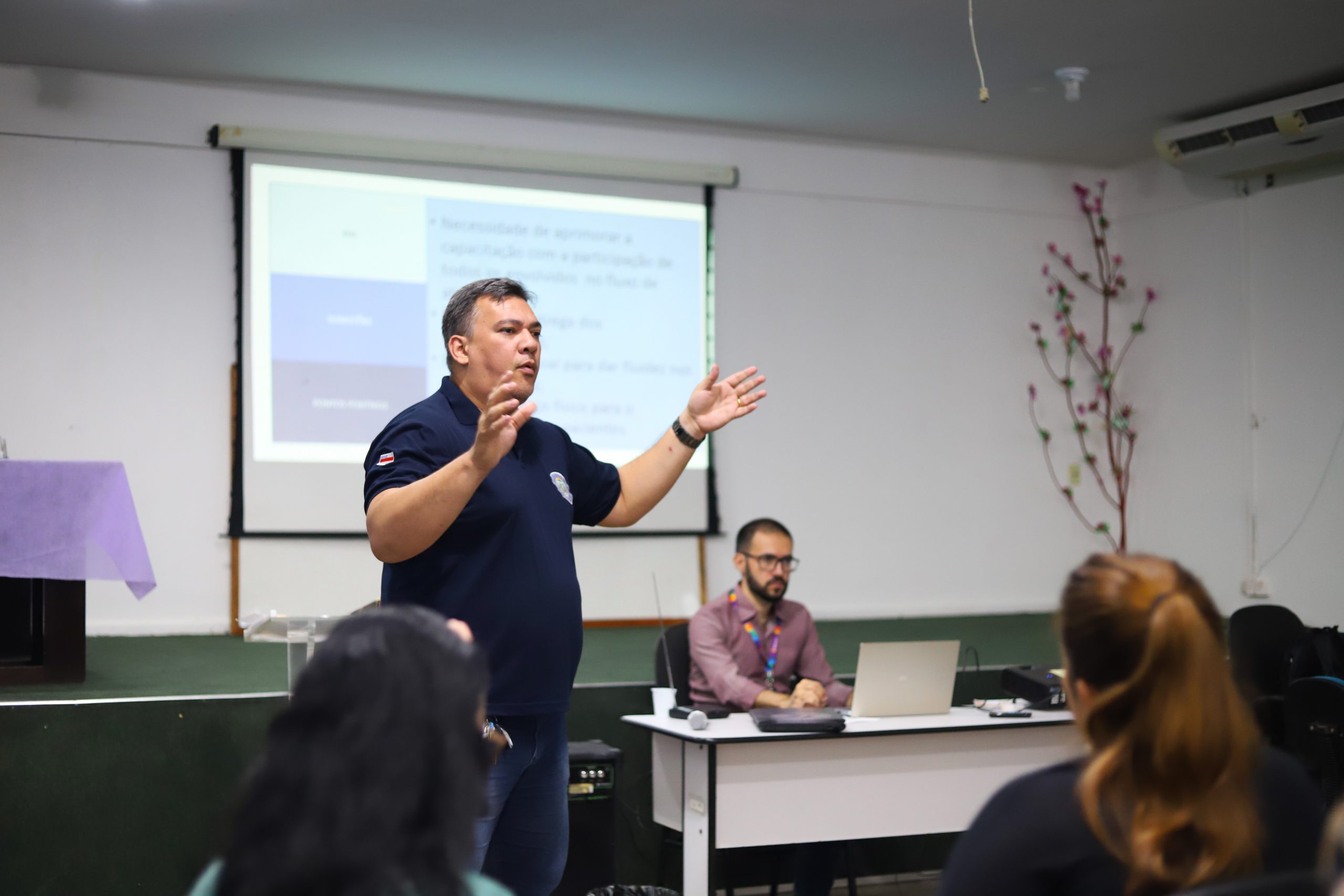The first meeting of services with the prevention of previous exposure to HIV (PrEP), promoted by the City of Manaus, on Friday, 6/16, in the auditorium of the Western Health Complex, Paz district, gathered professionals from the Municipal Secretariat of the City of Manaus. Health (SMSA). Currently, PrEP is available in four health units in the municipal network, serving 1,367 users of the Unified Health System (SUS).
According to the technician in charge of HIV / AIDS measures at the Epidemiological Surveillance Department (Gevep / Semsa), Nurse Rita de Cássia Castro de Jesus, the event was intended for managers and professionals from the four health units providing the service: Carmen Nicolau (Northern Region) , Fábio do Couto Valle (East Zone), Doutor Luiz Montenegro (Southern Zone) and UBS Ajuricaba (Western Zone).
“The aim of the meeting was to promote a space for professionals to share the experiences of each of them in providing service to the population, as well as to know the profile of the users being served and to identify improvements that can be made to expand access to the population,” explained Rita de Cassia.
The offer of pre-exposure prophylaxis (PrEP) in the municipal health network began in March 2021, in health units in the Western District of Manaus. In February last year, the offer was expanded to three more, and began serving residents in the northern, southern, and eastern regions.
A strategy that reduces the risk of contracting HIV by more than 90%, PrEP consists of daily use of antiretroviral drugs that have the function of preventing a person from becoming infected with HIV. In accordance with the Department of Health’s clinical protocol for PrEP, the service is intended for people from the age of 15 who represent contexts with an increased risk of HIV infection.
“PrEP is part of the HIV prevention suite. Before, there was always talk of using condoms for prevention. Today, in addition to condoms, we have PrEP and PEP, which is HIV post-exposure prevention,” she tells Rita de Cassia.
During event programming, representatives of each health unit presented a profile of PrEP users. Dr. Aline Alencar, who works at UBS Ajuricaba, made one of the presentations and said that the service serves 761 people, about 80% of whom are male at birth, and the main age group served is from 20 to 30 years.
“The health unit team is ready to welcome people into their different realities, in the fight against the HIV epidemic. In some cases, these are people who have HIV-positive partners and use PrEP to protect themselves from risks. Those who seek PrEP at UBS They are initially assisted by the nurse, receive orientation, undergo HIV testing, and then make a decision whether or not to commit to the service,” said Aline Alenkar.
The program also included a presentation on the topic “PrEP: The Emergence of Social Movements”, conducted by Gabriele Mota, community educator collaborating with the Tropical Medicine Foundation Doutor Heitor Vieira Dourado (FMT – Research Unit) and Ombudsman for Non-Nationals. Governmental Organization (NGO) Casa Amiga.
The presentation addressed the positive and negative experiences of PrEP users, points for improvement, and possibilities for expanding the service. As explained by Gabriel Mota, listening to service users, the positive point is the presence of the service provided in four health units, in addition to the Tropical Medicine Foundation, and the negative point is the waiting time for care, since UBSs perform other services.
“Waiting time is an issue that could be improved through dialogue with the government. But we think a lot about the social profile, people with more purchasing power being able to leave work to get care. A person who works in a factory or in a trade will have a harder time, and may end up It is important to have this exchange of experiences at the PrEP meeting, especially between health professionals and social movements. Gabriele Mota said: “We are at the forefront of people listening to the population, both Whether they are users of municipal services or not, it is important that they are heard.”
By 2025, Semsa aims, in accordance with the Annual Health Program, to introduce PrEP in at least nine health units of the municipality’s network, and to expand access to care for HIV/AIDS prevention.
– – –
text – Eurivania Galúcio/Semsa
filming – Graziela Praia/Semsa

“Wannabe internet buff. Future teen idol. Hardcore zombie guru. Gamer. Avid creator. Entrepreneur. Bacon ninja.”

